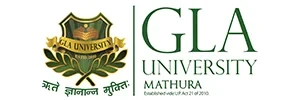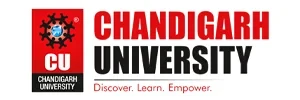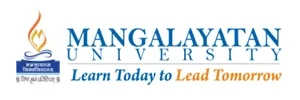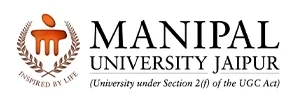









India's leading universities on a single platform within two minutes.
★100+ Universities
★30X comparison factors
★ Free expert consultation
★Quick Loan facility
★Celebrating 1 lac admissions
★Post Admission Support
★ CV Exclusive Community
★Job + Internship Portal
Compare & Apply from 100+
Online Degree Universities
- No-Cost EMI From 4,999 Subsidy
- Subsidy Available* upto 20,000
The Online MA course is the online masters of Arts course. If a student takes an online course for its flexibility and suitability, it will be considered a legit degree, not less than offline courses.
In this article, we will look out for different universities that are famous for online MA courses, top companies, high-paying jobs, fee structure, admission procedure, eligibility criteria, and many more details in depth.
Key Features of the Online MA
- Students will have lower tuition rates as a result of the use of pre-recorded lectures, Zoom sessions, and remote tutoring, which will keep costs and expenses to a minimum.
- MA online and MA offline will have the same comparison since the settings of the techniques of instruction will only remain online.
- The optimum quantity of resources is represented by a large number of online resources, all of which are readily available to students at any time and in any location.
- Students have the opportunity to take use of flexible class hours in the form of pre-recorded lectures, which are offered to them.
- Students will have their curriculum that is directed toward specific subjects that students have taken, updated to reflect the present knowledge.
Subjects
There are many subjects in online MA but here are a few most popular subjects which students can choose from. Refer below:
MA Economics Syllabus:
Semester I | Semester II |
Microeconomics | International Finance |
Elective I | Quantitative Theory and Methods |
Macroeconomics | Seminar II |
Econometrics | Elective II |
Seminar I | Developmental Economics and Planning |
Semester III | Semester IV |
Development Economics | Econometrics II |
Public Economics | Rural Economics |
Seminar III | Indian Economy |
Environmental Economics | Project |
Academic Writing | Economics and Law |
Project | Seminar IV |
MA Political Science Syllabus:
Semester I | Semester II |
Western Political Thought (From Plato to Hegel) | Political Sociology |
Contemporary Political Theory | Political Thinking Since Marx |
Research Methodology | Comparative Politics |
Ancient Indian Political Thought | Indian Constitutional System |
Practical Work/Exercise | Practical Work/Exercise |
Semester III | Semester IV |
Public Administration | Concept and Issue in Political Science |
International Politics | Post-Cold War International Relations |
Politics in India | State Politics with Special Reference to U.P. |
Modern Indian Political Thought | Indian Administration |
Practical Work/Exercise | Dissertation and Viva Voce |
MA History Syllabus:
Semester I | Semester II |
Aspects of Ancient India | State and Society in Medieval India |
State and Society in Medieval India | Modern India |
History of Tamil Nadu | Indian Government and Politics |
– | Interdisciplinary Course – History through Literature |
Semester III | Semester IV |
Modern India | Historiography |
World History | History of Tamil Nadu |
Computer Application in Historical studies | The Economic History of India |
Contemporary Issues in International Relations | Cholas/Guptas |
Special Course-Research Methodology | – |
MA Sociology Syllabus:
Semester I | Semester II |
General Sociology | Industrial Sociology |
Classical Sociological Theory | Perspectives on Indian Society |
Indian Society and Culture | Sociology of Rural Development |
Rural Sociology | Qualitative and Quantitative Research |
Semester III | Semester IV |
Advanced Social Theory Trends | Sociology of Organisation and Human Resource |
Sociological Concepts and Key Ideas | Sociology of Mass Communication |
Any two of the following:
| Any two of the following:
|
MA English Literature Syllabus:
Semester I | Semester II |
English Novel | Irish Literature |
English Drama | Canadian Literature |
English Poetry | Native-American Literature |
English Prose and Essays | South African Literature |
Literature in the 17th century | American Literature |
Literature in the 18th century | African Literature |
Literature in the 19th century | Australian Literature |
Romanticism, Neoclassicism | Modernism and Post- Modernism |
Semester III | Semester IV |
English in India: Sociological and Historical | Syntax and Structure |
Indian Writings in English | Linguistic Approach to Literature |
Literature in Indian English | Stylistic and Discourse Structure |
Indian Writings Translated into English | – |
History of English Language | – |
Phonology and Morphology of the English Language | – |
MA Hindi Syllabus:
Semester I | Semester II |
History of Literature | History of Literature |
Novel and Short Story | Prose 2-Drama and one-act plays |
General Linguistics | Ancient and Medieval Hindi poetry |
Translation -Theory and Practice | Origin and Development of Hindi Language and structure of Hindi |
Semester III | Semester IV |
Modern Hindi poetry including Chayavad | Post-Chayavad Hindi history |
Theory of literature Indian and western | Current Trends in Indian literature |
– | Project Work |
– | Indian Literature Trends |
– | Feminist Writing in Hindi |
MA in Psychology Syllabus:
Semester I | Semester II |
Personality | Cognitive Psychology |
Principles of Psychology | Psychopathology |
Physiological Psychology | Psychological Testing |
Psychology of LifeSpan Development | Cognitive Psychology Practical |
Research Methodology | Psychological Testing Practical |
Semester III | Semester IV |
Counselling Psychology | Clinical Psychology |
Health Psychology | Project |
Organisational Behaviour | Case Studies |
Psychological Assessment | Electives
|
Social Psychology | – |
MA Geography Syllabus
Semester I | Semester II |
Geomorphology | Geohydrology and Oceanography |
Climatology and Soil Geography | Biogeography |
Nature of Geography | Historical and Political Geography |
Economic Geography | Geographical Thought |
Quantitative Techniques and Digital Data Processing | Cartographic Techniques and Map Projection |
Soil Water Analysis, Surveying and Field Report | Thematic Mapping and Geographical Information System |
Semester III | Semester IV |
Social, Cultural and Settlement Geography | Resource Planning and Development |
Population and Human Development | Regional Planning and Development |
Regions and Regional Entity of India and West Bengal | Land Use Planning and Rural Development |
Special Paper | Special Paper |
Applied Statistical Techniques in Geography | Remote Sensing and Geographical Information System |
Special Paper | Term Paper (on special papers) |
MA Education Syllabus
Semester I | Semester II |
Information and Communication Technology in Education | Educational Data Analysis through Statistical Packages |
Methodology of Educational Research & Educational Statistics | Methodology of Educational Research & Educational Statistics-II |
Philosophical Foundations of Education | Philosophical Foundations of Education-II |
Psychological Foundations of Education | Philosophical Foundations of Education-II |
Sociological Foundations of Education | Sociological Foundations of Education-II |
Semester III | Semester IV |
Comparative Education | Comparative Education |
Dissertation Phase-I | Final Dissertation |
Syllabus
Students can refer to the syllabus below for their reference. Keep reading!
Economics Electives:
Environmental Economics
- Labor Economics
- Topics in Economic and Social History, 1700-1975
- Industrial Organisation
- Mathematical Economics
- Monetary Theory and Policy
Political Science Electives:
- Theory and Practice of Democracy
- Democracy and Human Rights in India
- The Modern State in Comparative Perspective
- Critical Traditions in Political Theory
- Development Process and Politics in India
History Electives:
- Historical Archaeology in Comparative Perspective
- The Archive and History Historiography in the Modern West
- History, Historiography, and Philosophy of Science
- Gender and Women in Ancient Societies
- Philosophy and Methods of History
Sociology Electives:
- Social Suffering
- Politics and Sociology of the Environment
- Critical Social Research: Truth, Ethics, and Power
- Qualitative Research
- Quantitative Data Analysis
- Application Criteria
Students who want to pursue their MA online should be eligible with regard to specific criteria. Only then are they allowed to be admitted to this course. Here are some of the admission criteria given below.
- Students should have their 12th certificate from a recognized Higher Secondary Education Board.
- The student should also have completed their graduation and successfully attained the degree from a recognized board with a minimum 50% score.
- Students for some of the courses should have relatable or similar graduation backgrounds to do MA online.
It is to be noted that students who do not fulfil these essential eligibility criteria will not be allowed to take admission to an MA online course. Hence, it is a mandatory eligibility criterion.
Course Duration
The duration of the MA online course is for 2 years which is subdivided into 4 semesters. Students will be studying their elective courses for 2 years before getting the degree.
Admission Process
A successful online MA application will always adhere to these guidelines. Students should keep these pointers in mind:
- Make sure you’re eligible: Before applying to the MA online program, students should make sure they meet all of the prerequisites.
- Admission form: Students should carefully and accurately complete the admissions application. Since the application would be rejected if any false information is provided.
- Verification: Students submitting admissions materials offline should have several copies of each document, including originals and scanned or Xeroxed (and authenticated) versions. When submitting papers electronically, students should check that the image they are uploading is clear and meets the requirements outlined on the college’s website. Inaccuracies in document summaries will result in an application being rejected.
- Interviews: Verification and thorough interviews will follow all of these steps for absolute certainty. Once the student has passed the interview and the required paperwork has been completed, they will be admitted. The interview stage is optional for many universities.
Fee Details
Students can check out academic fees for the following. The fees of top colleges are given below:
Name of the College | Average fees (INR) |
Hansraj College | 6,170 – 47,130 |
University of Mumbai | 8,720 – 46,550 |
Rabindra Bharati University | 2,314 – 9,870 |
Christ University, Bangalore | 13,400 – 161000 |
Jain University – [JU], Bangalore | 432 – 2,000 |
Symbiosis College of Arts and Commerce, Pune | 36,511 |
Lady Shri Ram College for Women – [LSR], New Delhi | 4,120 – 47,900 |
Indraprastha College for Women – [IP], New Delhi | 16,480 – 1,12,000 |
Indira Gandhi National Open University | 12,680 – 37,500 |
Osmania University | 1,860 – 20,000 |
Specialisations
Here are some specialisations for the popular courses. Refer below:
Students can refer to the syllabus below for their reference. Keep reading!
Economics:
- Environmental Economics
- Labor Economics
- Topics in Economic and Social History, 1700-1975
- Industrial Organisation
- Mathematical Economics
- Monetary Theory and Police
Political Science:
- Theory and Practice of Democracy
- Democracy and Human Rights in India
- The Modern State in Comparative Perspective
- Critical Traditions in Political Theory
- Development Process and Politics in India
History:
- Historical Archaeology in Comparative Perspective
- The Archive and History Historiography in the Modern West
- History, Historiography, and Philosophy of Science
- Gender and Women in Ancient Societies
- Philosophy and Methods of History
Sociology:
- Social Suffering
- Politics and Sociology of the Environment
- Critical Social Research: Truth, Ethics, and Power
- Qualitative Research
- Quantitative Data Analysis
Career Opportunities
Students can get a wide variety of jobs when they opt for an MA online course:
- Architecture: students can become architects by getting into building properties and designing them with the highest-paying job prospects.
- Advertisement Industry: Students can become content writers or digital marketers, which are also in high demand in today’s world.
- Fashion industry: students can become stylists or fashion professionals, guiding celebrities and people in their fashion sense, making new clothes.
- Journalist: students can also become journalists while completing their MA in Mass Communication.
Top Hiring Firms
Here are some of the top companies where MA students are in high demand. Keep reading!
- Amazon
- Accenture
- Goldman Sachs
- McKinsey and Company
- IBM
- Infosys
- Coca Cola
- Citibank
- BCG
- Oracle
- Apple
- J.p Morgan
- Deloitte
- Bain and Company
- Salesforce
- Walmart
Mode of Courses Available
There are numerous other types of courses in the same field that you can readily enrol in if you meet the eligibility requirements and follow the same admissions process.
Offline Course
The students will have access to everything offline, and in addition to the offline foundation course, they will have the opportunity to participate in field trips and classroom courses.
Distance Course
MA Online distance courses are comparable to online courses where students are not required to attend the university. They can satisfy all requirements online and will have online classes.
Combined courses
In addition to MA online, students can pursue additional online courses for their joint Masters degree. Students can choose from English, journalism, and a variety of similar courses offered by the University.
Top Universities
Here are some of the most popular universities which students can apply to. Refer below:
Name of the College | Average fees (INR) |
Hansraj College | 6,170 – 47,130 |
University of Mumbai | 8,720 – 46,550 |
Rabindra Bharati University | 2,314 – 9,870 |
Christ University, Bangalore | 13,400 – 161000 |
Jain University | 432 – 2,000 |
Symbiosis College of Arts and Commerce, Pune | 36,511 |
Lady Shri Ram College for Women | 4,120 – 47,900 |
Indraprastha College for Women | 16,480 – 1,12,000 |
Indira Gandhi National Open University | 12,680 – 37,500 |
Osmania University | 1,860 – 20,000 |
What Are the Reasons for Choosing Online MA?
There are numerous reasons for students to pursue an online MA. Listed below are some significant reasons:
- Students working or living away from university can earn their MA online at their convenience, saving time and boosting their productivity.
- Attending daily college lectures can be avoided with online courses, as online courses are not less valuable than offline courses for degree completion.
- Those who find it difficult to travel can readily access remote resources and online learning platforms to earn a degree.
- Colleges offering online courses will include every resource in their digital platform or on their website, ensuring that students have access to all materials whenever they desire.
- Compared to offline courses, online courses are much more convenient to take because students can earn their degrees from the comfort of their own homes.
- Online courses are typically less expensive than offline courses because they require fewer resources from the institution or university to teach students the necessary skills.
Why Should You Opt For An Education Loan?
Students can readily obtain additional student loans to fulfil their study requirements for online MA programs. Students who take out a loan will have the opportunity to earn their degree, advance their education, and apply for a variety of jobs. In addition to having a low-interest rate, student loans will help students gain independence early on. Students who need loans are also able to attend prestigious universities without incurring a financial burden. After MA, students who are financially reliant on loans will be able to adequately repay their loans.
Conclusion
If you have completed graduation and are now looking for higher study prospects while maintaining flexibility in your routine, you can always opt for an online MA course. Online MA is an excellent option for students who are currently working after graduation but are actively looking for higher study prospects in their streams.
